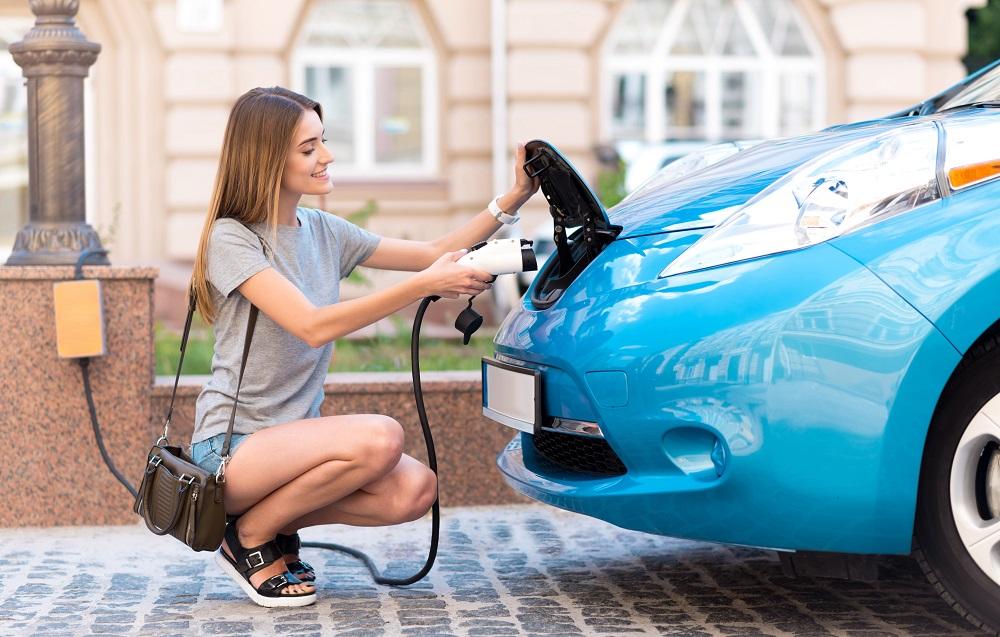
What are the most environmentally friendly cars? This is a question that more consumers are asking as environmentally friendly cars become more popular. Environmentally friendly cars have become more popular as more consumers face growing concerns about the environmental effects of conventional vehicles, and for good reason. According to the EPA, cars contribute about 75% of the earth’s total carbon monoxide pollutants, and the Environmental Defense Fund estimates that cars cause about one third of total air pollution that produces smog and roughly 27% of greenhouse gas emissions.
But when you consider things like manufacturing, driving and charging, are hybrid or electric vehicles really the most environmentally friendly cars? Let’s find out.
Production of environmentally friendly vehicles
Hybrid and electric cars require more energy to manufacture than conventional cars do, and these additional manufacturing processes cause the emission of more greenhouse gases and the consumption of more fossil fuels in the process. According to the Union of Concerned Scientists (UCS), the manufacture of electric vehicles can result in anywhere from 15% to 68% more emissions than the manufacture of conventional cars. The production of hybrid car batteries in particular requires much more energy than standard car batteries, resulting in more emissions of gases like sulfur dioxide.
Battery disposal
Battery disposal is an issue that affects every vehicle, whether it’s conventional, hybrid or electric. It’s important that conventional car batteries are disposed of properly, as they contain many caustic chemicals that can be harmful on the environment. One way to properly dispose of conventional car batteries is to recycle them. Used batteries are taken to recycling centers, where they are broken down. The remaining materials are processed and sold to manufacturers for use in other products.
While recycling conventional car batteries is a way to help reduce their environmental impact, batteries that are retired from hybrid or electric vehicles can be either recycled or even reused. Manufacturers estimate that battery packs that are no longer able to power hybrid or electric vehicles still operate at about 80 percent of capacity.
Currently, several major power utilities are working with auto manufacturers to explore the use of the batteries for stationary storage of the power produced in off-peak periods by wind turbines and solar generation. The battery packs are also being tested for use as backup power sources for retail centers, restaurants and hospitals. In addition to these other uses, hybrid and electric vehicle batteries can also be recycled so their materials may be reused in other applications.
Driving an environmentally friendly vehicle
Hybrid vehicles are just that—hybrids. This means they still burn conventional fuel, and thus produce carbon emissions. However, studies have shown that conventional vehicles produce up to 50% more emissions than hybrid vehicles.
Electric vehicles, obviously, do not burn fuel, meaning they emit no greenhouse gases from the tailpipe. However, that doesn’t mean electric cars aren’t responsible for any greenhouse gas emissions. Electric cars require an electric charge, so an electric car is only as clean as the power source it gets its electricity from. Essentially, an electric car is responsible for whatever emissions are produced in order to generate the power necessary to charge the car. The US Department of Energy refers to this as “upstream emissions.” In most cases, however, and especially as we move toward cleaner methods of energy production, the source of the electricity used to charge an electric car is going to be cleaner than gasoline.
So, do the negative environmental impacts of hybrid and electric vehicle production outweigh the other environmental benefits? Definitely not. Though certain aspects of hybrid and electric production and use do result in the creation of emissions, conventional vehicles still require far more energy to operate and emit more greenhouse gasses over their lifetime than either hybrid or electric vehicles. The UCS found that, when compared to the emissions produced by conventional cars, battery powered electric cars will offset the extra emissions created during production within six months of use. And while the car battery in any vehicle can be recycled, batteries that are recycled from hybrid and electric vehicles are more useful.
When it comes to driving, there’s no question that hybrid cars result in fewer carbon emissions than conventional vehicles, as we stated above. Likewise, electric cars will always outperform conventional vehicles in terms of carbon emissions produced. As far as how much more environmentally friendly than conventional vehicles they are, again, depends on how environmentally friendly the power source they rely on is. However, even electric cars that rely fully on electricity generated from burning coal will be responsible for about half as much carbon production as conventional vehicles. Which brings us to our initial question:
Are hybrid or electric vehicles the most environmentally friendly cars?
The answer to this question comes down to where an electric car in any given area is going to get its electricity from. In states that use more clean power sources, electric cars are going to create fewer emissions than hybrid cars. In states that rely on more conventional power sources, hybrids can occasionally overtake electric cars in terms of the fewest emissions created.
Based on a report by the Department of Energy, the nonprofit Climate Central found that in 18 states that still heavily depend on coal and have little to no renewable or nuclear power in their electricity mixes, driving and recharging an electric car is slightly worse for the environment than the gasoline burned in a hybrid or high-mileage car. However, they also found that in 11 states that rely on more clean and renewable energy sources in their grid, driving an electric car is better for the environment than driving a hybrid or conventional car. In the remaining states, the difference in emissions between hybrid cars and electric cars is insignificant.
However, regardless of where you live, there’s no question: hybrids and electric vehicles are the most environmentally friendly cars.

